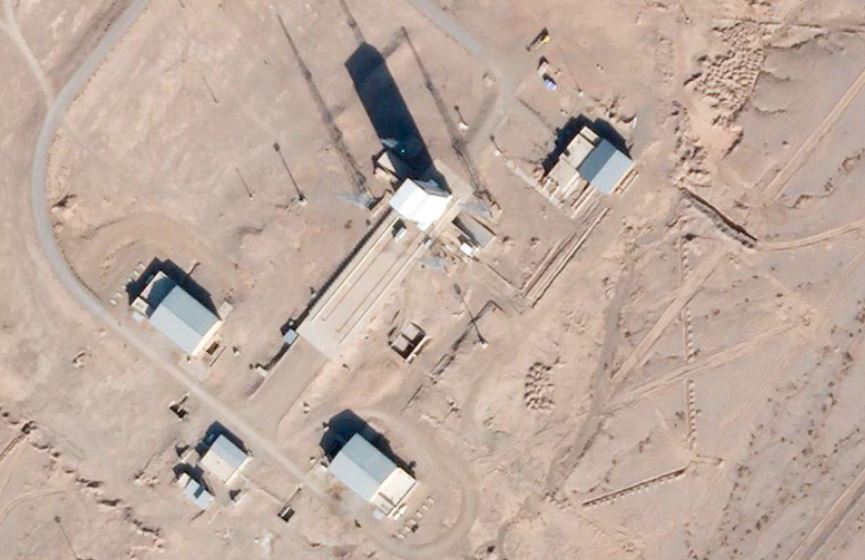By Max Boot
President Donald Trump’s 2018 decision to pull out of the Iran nuclear deal might have been the most disastrous foreign policy miscalculation since the invasion of Iraq in 2003. (The only competitor for that dubious honor is the one-sided agreement that Trump concluded with the Taliban and that President Biden implemented.)
Under the 2015 nuclear deal, Iran got rid of 97 percent of its nuclear fuel and limited its uranium enrichment to just 3.67 percent purity. Its “breakout” time to produce enough material to make a nuclear bomb was estimated to be more than a year.
Read also
Trump’s withdrawal allowed Iran to rev up its nuclear program. The International Atomic Energy Agency reported last year that Iran had 12 times the amount of enriched uranium allowed under the deal. It is also enriching uranium to 60 percent purity, just short of the 90 percent needed to make nuclear weapons. Its breakout time has shrunk to as little as three weeks. It will take longer to manufacture the warheads needed to create nuclear weapons, but Iran is far closer to that dreaded milestone than it was in 2018.
Even former Israeli security officials, most of whom opposed President Barack Obama’s nuclear deal, now admit that pulling out of it has backfired. Benjamin Netanyahu’s former defense minister, Moshe Yaalon, said last month: “Looking at the policy on Iran in the last decade, the main mistake was the withdrawal of the U.S. administration from the agreement.” Former Mossad director Tamir Pardo described the pullout as a “tragedy.” Retired general Isaac Ben Israel, chairman of the Israeli Space Agency, called “Netanyahu’s efforts to persuade the Trump administration to quit the nuclear agreement … the worst strategic mistake in Israel’s history.”
Now they tell us.
The Biden administration has been trying to revive the nuclear deal. Talks are going on in Vienna. But Iran feels burned by Trump’s pullout, and its new hard-line president, Ebrahim Raisi, hasn’t shown much interest in compromise. Secretary of State Antony Blinken said this month that “Iran right now does not seem to be serious about doing what’s necessary to return to compliance.”
That means the United States and Israel might be drawing closer to the decision they have long dreaded: Do they bomb Iran or allow Iran to get The Bomb? In the past, I would have said that bombing was the least-bad option, but I no longer believe that.
A nation of 85 million people, Iran is much larger and much stronger than the adversaries that America couldn’t defeat in Iraq and Afghanistan. And its nuclear program is far more advanced than those of Iraq or Syria when Israel bombed suspected nuclear facilities in those countries in 1981 and 2007, respectively.
The Iranian nuclear program is dispersed across dozens of hardened, hidden sites, all protected by a sophisticated air-defense system. The Fordow fuel enrichment plant is buried deep inside a mountain. Taking down Fordow, if it can be done at all, would probably require the 30,000-pound Massive Ordnance Penetrator. Israel does not have this bomb or the bomber — either a B-2 or B-52— needed to drop it.
The United States could, of course, provide Israel with these munitions, or it could bomb Iranian installations itself. But even successful strikes would only delay Iran’s nuclear program: You can eliminate nuclear facilities but not nuclear know-how.
Moreover, there is a real risk that any attack could trigger a larger Middle Eastern war. Iran would likely retaliate against U.S. forces in the region and against U.S. allies. Lebanese Hezbollah, for example, could rain down more than 100,000 missiles and rockets on Israel, enough to overwhelm its missile defenses. (In the 2006 Lebanon war, Hezbollah fired only 4,000 short-range rockets at Israel.) There’s a good reason no Israeli or American leader — not even hawks such as Netanyahu, George W. Bush and Trump — has been willing to bomb Iran. As I wrote in 2019, war with Iran could be “the mother of all quagmires.”
Letting Iran go nuclear, if that proves unavoidable, might actually be the less dangerous option. The Iranian regime has employed suicide bombers in the past, but it isn’t suicidal itself. Its leaders know that Israel has a large nuclear arsenal — including nuclear missiles reportedly deployed on submarines that could survive any attack on Israel. The United States could further deter Iran by explicitly extending its nuclear umbrella not only to Israel but also to Saudi Arabia, Turkey and other neighboring states. Nuclear weapons would allow Iran to avert a U.S. invasion that isn’t going to happen anyway but would do nothing to protect the regime against the biggest danger it faces: an uprising from its own people.
The Biden administration should keep trying to peacefully stop the Iranian nuclear program, but that might no longer be possible because of Trump’s catastrophic decision to leave the accord. And if those efforts fail? Well, we have lived with nukes in the hands of other vile and abhorrent regimes, such as the Soviet Union/Russia, North Korea and China. If we have to, we could learn to live with a nuclear Iran, too.



























































